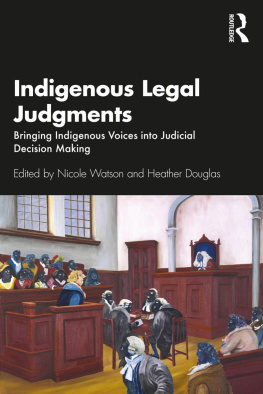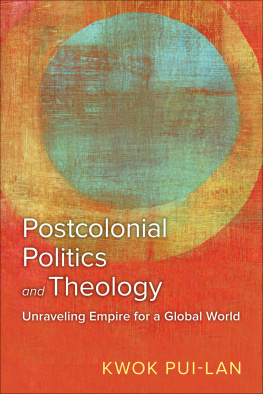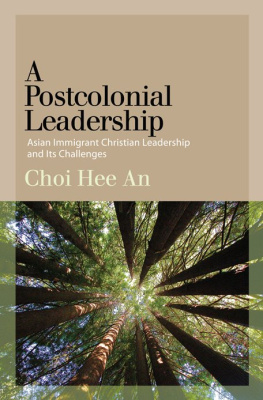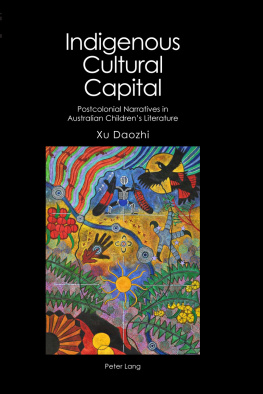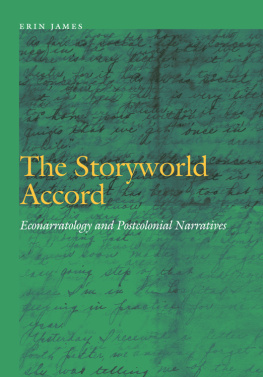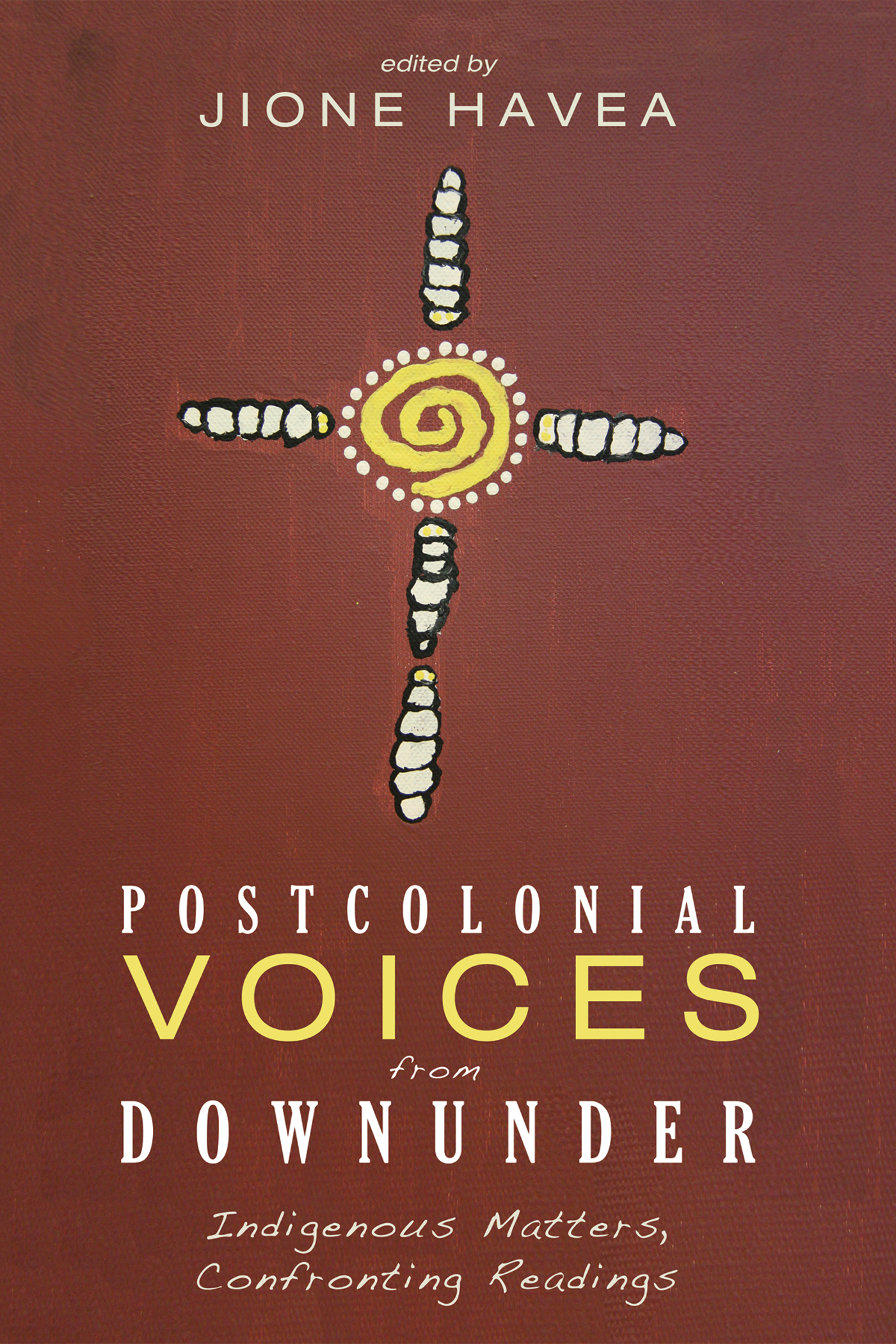Preface
S everal of the essays in this monograph were presented at the Postcolonial Engagement: Politics, Religions, Scriptures conference held at United Theological College, North Parramatta (NSW, Australia on August 2014 ), supported by a grant from the Public and Contextual Theology Research Centre (PaCT) of Charles Sturt University. PaCT extended its support with a Publication Grant. Not all of the presentations at that postcolonial conference are included here, and the essay by Mark G. Brett was not presented at the conference but later welcomed into the collection.
As a collection, the essays have decidedly postcolonial voices from downunder characteristics. Following my opening essay (Postcolonize Now), which offers postcolonizing ruminations around (rather than a survey of or recounting about ) postcolonial biblical criticisms and postcolonial theologies, the essays are divided into two parts: () Indigenous matters contains four essays that present and address topics that are significant to First Peoples of, in and beyond Australia. These essays, echoing the #BlackLivesMatter movement among African-Americans in the United States of America, affirm that Indigenous black lives do matter. There are two moors of this affirmation: roots (indigeneity) and color (blackness). Both matter in the voices from downunder that recount and engage the different subjects addressed in this first cluster of essays. () Confronting readings contains eight essays that engage biblical texts, religious convictions, cultural biases, language struggles, as well as Second Peoples attitudes, perspectives and blind-spots. This cluster of readings meander from Zion/Jerusalem to the migrating languages of native Pasifika/Oceania, from the idealizing of Islam to the ideologies of Second Peoples, from the ideologies of settlers to the interests of migrants and refugees, from the blessings of biblical patriarchs and the hesitation of Balaams ass to the spin doctors of Australian media, and side paths in between and around those.
In the cluster of Indigenous matters are four essays: Gabrielle Russell-Mundine and Graeme Mundine (Inculturation, Assimilation, and the Catholic Church: An Indigenous Postcolonial Intervention) address the ways in which the Catholic Church in Australia, which has a relatively long and complex history of interaction with Indigenous Peoples, deal with the challenges of assimilation and inculturation. Christians came as purveyors of the Word of God, but the Word was wrapped in the culture of the countries from which they came. They brought with them a missionary fervor to evangelize, but over time they also implemented Government policies such as protectionism and assimilation. Despite this sometimes difficult relationship with the Church, for Indigenous People of faith, the melding of Christ and Culture is a comfortable progression from their own knowledge of God prior to colonization toward a more recent understanding about Jesus. However, the relationship between Indigenous culture and faith often remains contested and uncomfortable amongst the wider Church community.
The Catholic Church teaches that inculturation or the melding of culture and faith is both possible and desirable. However, for Indigenous Catholics there is still the question about whether they have been joyfully received by the Church, as was urged by Pope John Paul II, or to what extent the Catholic Church in Australia is a place of assimilation from an Indigenous perspective? Russell-Mundine and Mundine consider this question from the context of the history of the Catholic Church with Indigenous Peoples, drawing on their experiences to highlight aspects of Church practices and behaviors which are bound to the cultural practices of the dominant non-Indigenous cultures and which continue to impact on Aboriginal cultural expressions of faith.
Denise Champion and Chris Budden (First Peoples, Ancient Spirit, and the Uniting Church Preamble: Opportunity and Challenge) offer a conversation over the 2014 Preamble to the Constitution of the Uniting Church in Australia (UCA), from the perspective of both First and Second Peoples. Their reflection juxtaposes the voices of a First Person (Champion) and a Second Person (Budden). Champion and Budden believe that the Preamble sits alongside the Basis of Union as one of the significant shaping documents of the UCA, and for the relationship between the Uniting Aboriginal and Islander Christian Congress (UAICC) and the rest of the Uniting Church. In their conversation, Champion and Budden show how the Preamble invites the stories and voices of Indigenous People, so that Champion could connect her stories to the gospel, but there are nonetheless colonial strands in the fabrics of the Preamble and of the Uniting Church in Australia (symptomatic of other Christian churches in the region).
Neville Naden (Aboriginal Land and Australias First Nations Peoples: Calling for Treaty, Recognition, and Engagement) presents a First Peoples assessment of the way that indigenous land has been viewed and controlled in colonial Australia. Since settlement, the First Peoples of Australia have fought for the recognition of their sovereignty and land custodianship. Federal and State Governments, as well as churches, have benefitted greatly as a result of dispossessing the First Nations Peoples of the land that God had apportioned them. In response, Naden outlines a theological framework for those who would argue that the colonization of Australia was Gods will, and discusses some of the difficulties that consequently arise.
Indigenous Peoples experience of colonization is often grouped into a few collective descriptions, such as resistance or acquiescence. Postcolonial studies have recognized the heterogeneous nature of colonial contexts and encouraged more nuanced dialogue of various expressions within these descriptions. An increasing number and range of subaltern voices are emerging in contemporary discussions. These voices are not homogenous, and their concerns are not new. Archival sources of colonial churches, missions and government bodies indicate a variety of Indigenous responses to Christian faith throughout the colonial era. This variety of voices gives rise to multivalent perspectives and interpretations of the Bible and of Christian theology.
Grant Finlay (Always Crackney in Heaven) examines oral and written responses by Christian Aboriginal people in trouwunna / Tasmania, the island south of mainland Australia, at a pivotal location during a crucial period of its colonial history, namely the Wybalenna Settlement on Flinders Island from 1832 to 1847 . From largely unpublished sources Finlay discerns a variety of Aboriginal responses and interpretations of Christian faith. Finlay focuses on the topic of heaven in Aboriginal addresses at Wybalenna to highlight the variety of relationships and multiple layers of meaning that were occurring, and links that past experience with contemporary discussion of contexts for Indigenous theology.
In a context of enforced English-only Christian faith, Aboriginal people were not limited to this colonial language. They conversed primarily in first language, creole and, less often, in English. Their expressions of Christian faith were part of engaging in multiple contexts simultaneously as they negotiated relationships not only with colonial authorities, but also with each other. Their intra- and inter-clan relationships were more influential than Aboriginal-colonial relationships in the emergence of these initial expressions of Indigenous theology.


